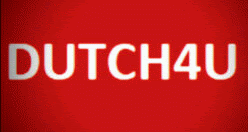Nouns are verbs that can form a predicate. Examples: lopen lezen, rijden begrijpen ect. Ik loop liever alleen, Ik lees graag in bed, Ik rijd graag hard.
Copulas are verbs that helps to form a nominal predicate. The copulas: zijn, worden, heten, blijven, schijnen lijken blijken (dunken en voorkomen). Examples: Zij is oud. Hij wordt beter. Dat lijkt moeilijk.
Auxiliary verbs helps forming a predicate. There are different types of auxiliary verbs: auxiliary verbs that indicate the time: hebben, zijn en zullen. Ik doe het (vtt). Hij bleef daar (ovt). Hij zal het doen(ottt).
Zie Extraned
Auxiliary workplaces of the passive voice: zijn en worden. Je wordt door hen bedrogen. Mijn fiets is gemaakt door Leo.
Other auxiliary verbs: kunnen, mogen, moeten, willen, vertrekken, etc.
Oefening/exercise
